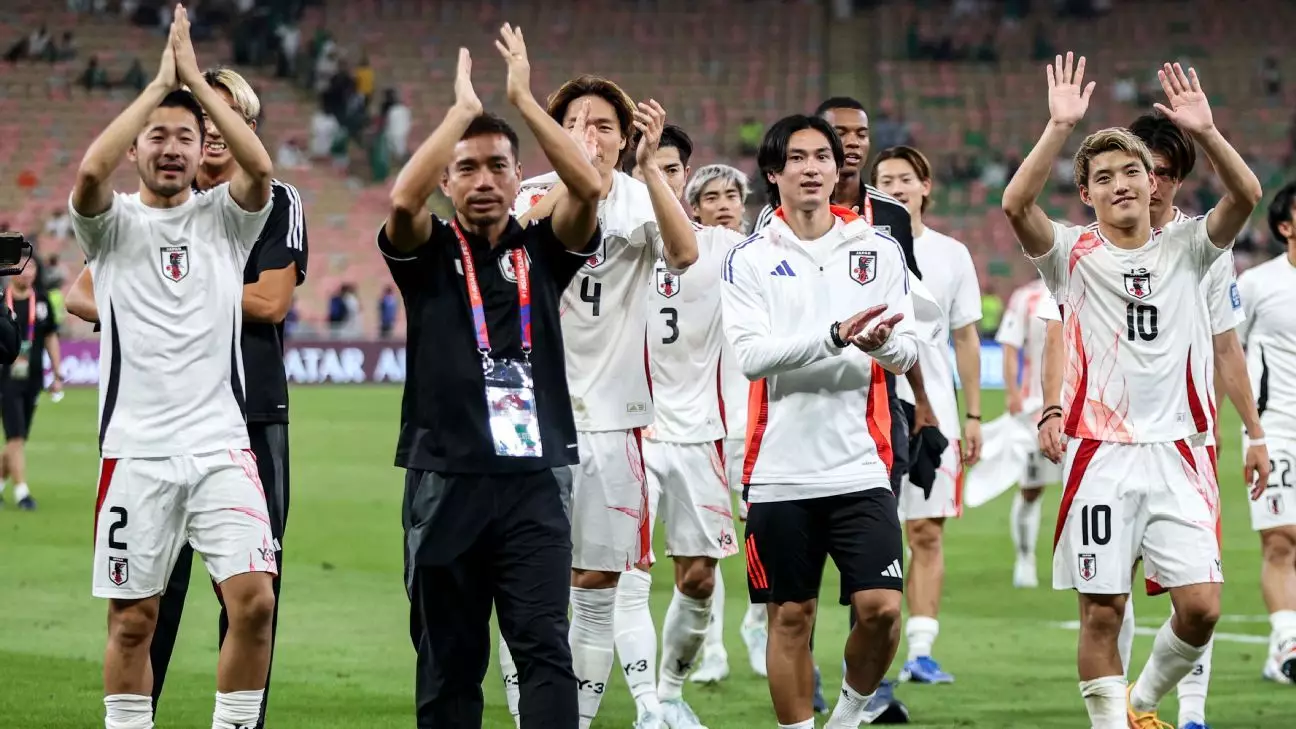In today’s rapidly evolving landscape of international football, the phenomenon of longevity in coaching positions is becoming increasingly rare. This disengagement is particularly noticeable at the international level, where national teams frequently undergo leadership changes after disappointing tournaments. Yet, Hajime Moriyasu’s tenure as head coach of the Japanese national team since 2018 stands out as a remarkable exception. His continued stewardship—especially through the World Cup cycles—highlights a commitment that is seldom witnessed among national coaches.
With just seven of the 32 coaches from the 2022 FIFA World Cup still in their respective roles, staying power is a testament to Moriyasu’s adept management and the faith entrusted in him by the Japan Football Association (JFA). Comparatively, figures like Lionel Scaloni of Argentina and Didier Deschamps of France—who have each achieved considerable success in their long tenures—demonstrate a trend where stability can lead to triumph. Japan, however, is often overlooked on the world stage despite its capabilities and past achievements.
Moriyasu’s recent campaigns have signaled a resurgence for the Samurai Blue, who have been alarming their Asian rivals with a series of impressive performances. His leadership has enabled Japan to assert its dominance in the Asian Football Confederation (AFC) qualifiers. Their formidable record—unbroken in consecutive matches where they scored 21 goals while maintaining clean sheets during the second round of qualification—has set an enviable benchmark. With Moriyasu at the helm, the team has transitioned from their historically conservative style towards an approach characterized by high-scoring games and effective teamwork.
In recent months, Japan showcased its prowess against not only regional competitors but also teams from more prominent footballing nations, including victories over Canada and a notable win against Germany. These triumphs underline a broader strategy aimed at infusing young talent into the squad, a tactic that has proven successful in rejuvenating the team’s competitive spirit.
The foundation of Japan’s success lies not only in Moriyasu’s tactical acumen but also in his ability to foster a generation of talented players. The “Tokyo Olympics Generation” has brought fresh energy and skill to the national squad, effectively positioning themselves to succeed the established names in Japanese football. The fact that 37 players currently represent the national team have European club experience speaks volumes about the caliber and depth of the squad.
Key contributors, such as Zion Suzuki and Wataru Endo, exemplify this rise in talent, as they establish themselves as critical components of their respective clubs. Additionally, the absence of seasoned defenders like Takehiro Tomiyasu and Hiroki Ito due to injuries has not hindered the team’s performance, indicating the promising depth that the upcoming stars provide.
A Vision for the Future
Looking ahead, the JFA’s “Japan’s Way” initiative illustrates a clear vision for the future, aiming to transcend beyond Asian borders and compete globally. This philosophy places as much emphasis on grassroots participation as it does on elite development. The ambition of fostering a community of “10 million football families” reflects an understanding that football’s long-term health in Japan relies on both player development and broader societal engagement with the sport.
Such an inclusive approach aims to celebrate Japan’s unique identity in football, emphasizing the establishment of a culture that does not merely imitate the success of Western nations but adapts those successes to the Japanese context. This self-awareness is vital for creating a sustainable football framework in a nation that has only had a professional league—J1 League—since 1992.
Upcoming Challenges and Opportunities
Despite the uplifting narrative surrounding the team, challenges remain. Japan’s past performances in major tournaments, such as the recent Asian Cup, expose vulnerabilities that Moriyasu must address. The disappointing early exits serve as reminders that historical success does not guarantee future triumphs. The scrutiny that comes with heightened expectations can act as a double-edged sword, necessitating resilience and adaptability from both coach and players.
As Japan faces off against Australia—a rival with a shared history and competitive spirit—this forthcoming match represents more than just a qualification fixture. It serves as an opportunity to solidify their position as the best in Asia while testing the resolve of a squad aiming for international notice. With Moriyasu and his players eager to prove their critics wrong, they embark on their journey with the potential to reframe their narrative and take a pivotal step towards achieving their ambitious dreams.
Ultimately, Japan’s footballing narrative is as much about cultural evolution as it is about sporting success. By fostering young talent and promoting an inclusive football culture at all levels, Japan not only aspires for victories but also seeks to inspire the next generation of football enthusiasts both domestically and internationally. The coming years will be crucial in determining whether this vision translates into tangible success on the world stage.
